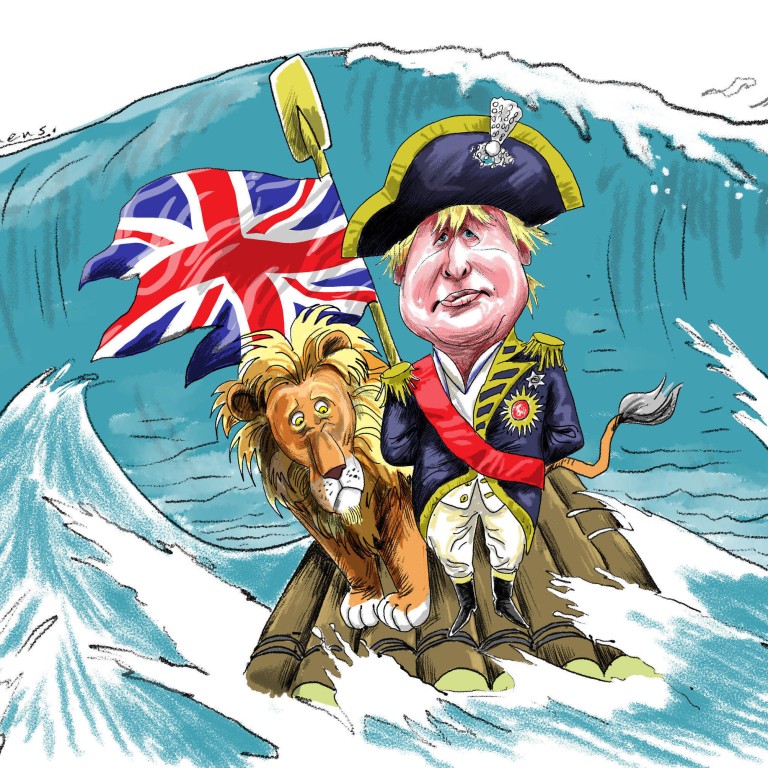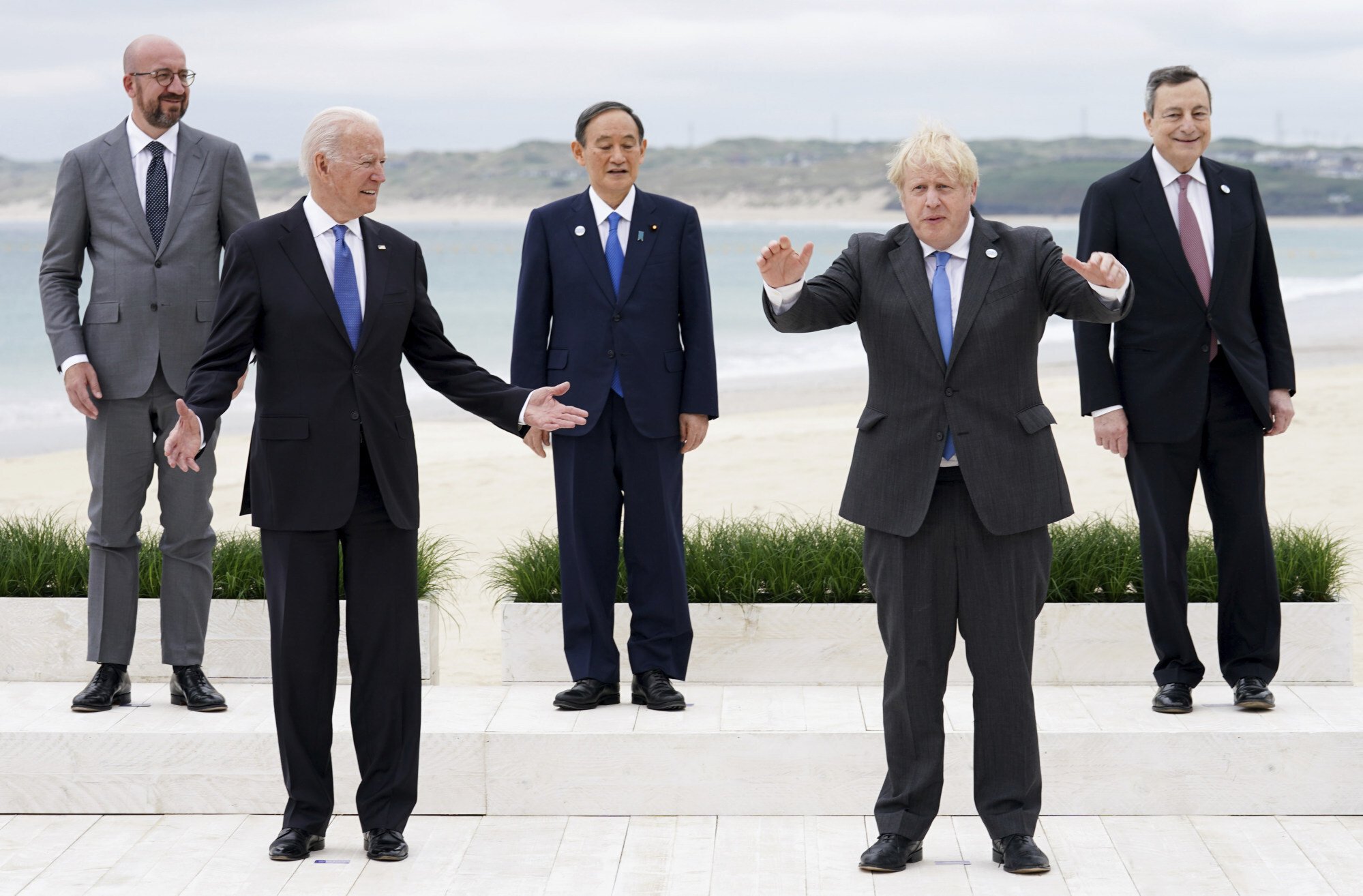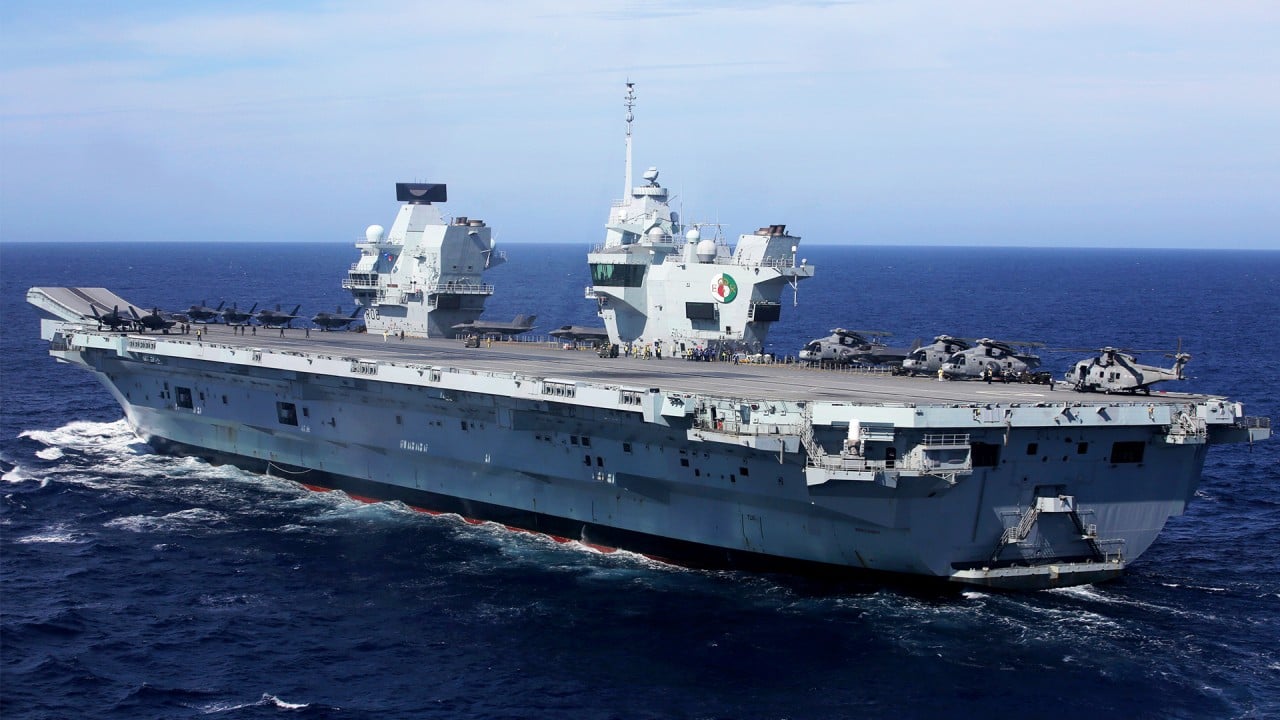
Britain’s delusions of grandeur increase risk of armed conflict
- Going to the edge and risking world peace is a prerogative of a superpower – not a middle power like Britain
- Russia and China will show much less tolerance for Royal Navy incursions into what they believe to be their waters than for the much more powerful US Navy
The foray into the Black Sea was not about the right of “innocent passage”. It was a provocation. Why else would there be a BBC television camera crew and a Daily Mail reporter on board the Defender if not for showing the British people how their government is standing up to Russia?
Hopefully this excursion will also end without harm. But what if it doesn’t? What if, intentionally or by miscalculation, British and Chinese vessels collide, a ship is sunk, a plane is downed or a sailor drowns? What will Johnson do then? Declare war on China?
Going to the edge and risking world peace is a prerogative of a superpower, not a middle power – and a middle power is exactly what Britain is.
New UK flagship: best of British or Boris Johnson vanity project?
The Biden administration, on the other hand, seems happy with Johnson performing dangerous stunts. Why endanger American sailors and airmen when the British volunteer to do it for you? But the Biden administration is increasing the risk of armed conflict by condoning British adventurism in the South China Sea.
Russia and China are far less deterred by the UK than they are by the United States. They will show much less tolerance for Royal Navy incursions into what they believe to be their waters than for the much more powerful US Navy.

In other words, the risk of armed conflict is higher when a middle power faces a superpower than when two superpowers face each other. If something goes wrong in the South China Sea, the crisis will not stop at 10 Downing Street. It will land at the White House’s doorstep, and Washington will be forced to come to the rescue of its junior partner or lose international credibility.
In 2003, it was Blair who validated America’s shaky intelligence about Saddam Hussein’s alleged weapons of mass destruction and who encouraged Bush to invade Iraq, causing one of the worst calamities of the 21st century. Now it is Johnson who is not only reinforcing Washington’s hardest impulses on China and Russia but who is actually fanning the flames.
Gal Luft is co-director of the Institute for the Analysis of Global Security and professor at Ostim Technical University



